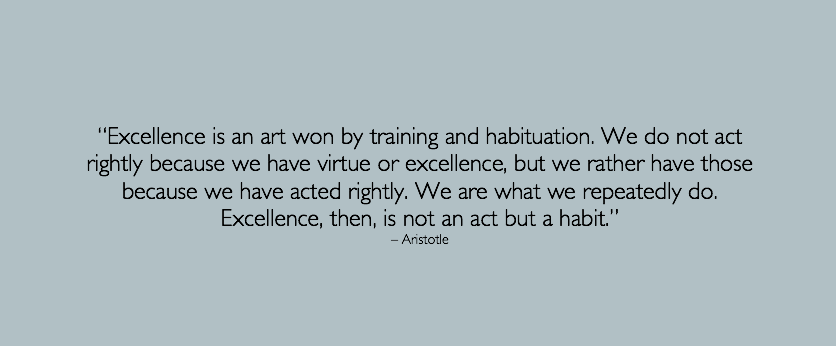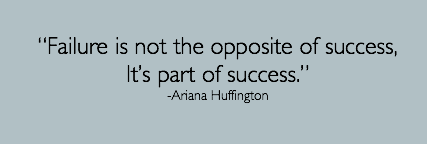
Table of Contents
Subscribe & Get Yours Goal Setting Template for 2024
Embracing Failure for Growth and Success: A Journey in Black Box Thinking
Failure has long been stigmatized as something to be avoided at all costs. However, a paradigm shift is taking place, recognizing that failure is not only inevitable but also a crucial stepping stone to growth and success. In this article, we delve into the concept of “Black Box Thinking” and how we can learn from industries such as aviation, where failures are thoroughly analyzed to prevent future mishaps. By shifting mindsets, building a culture of psychological safety, and implementing continuous learning strategies, we can embrace failure as a valuable opportunity for improvement and innovation. Join us on this journey to explore the power of embracing failure and harnessing it as a catalyst for success.
The Importance of Embracing Failure
Failure. It’s a word that often fills us with dread and sends shivers down our spines. We’ve been conditioned to believe that failure is something to be avoided at all costs. But what if we told you that failure is not only inevitable but also essential for growth and success? Yes, you read that right. Embracing failure is the secret ingredient to pushing boundaries, learning from our mistakes, and ultimately achieving greatness.
“The key to success is failure.”
Contrary to popular belief, failure and success are not mutually exclusive. In fact, they are closely intertwined. Think about it. How many successful people do you know who haven’t experienced their fair share of failures along the way?
Thomas Edison, the inventor of the light bulb, once said,
“I have not failed. I’ve just found 10,000 ways that won’t work.”
It’s through these failures that we gain valuable insights, learn what doesn’t work, and discover new paths to success. The willingness to embrace failure is what separates the ordinary from the extraordinary.
The Concept of Black Box Thinking: Learning from the Aviation Industry
When an airplane crashes, investigators rely on the black box to piece together what went wrong. This technology, which records data and captures cockpit conversations, provides invaluable insights into the causes of the crash. The concept of black box thinking extends beyond aviation and serves as a metaphor for learning from failure in any field. It emphasizes the importance of analyzing failures, understanding the root causes, and implementing changes to prevent similar mistakes in the future.
The aviation industry has long recognized the need for a culture of learning from failures. By encouraging pilots and crew members to report errors, near misses, and potential hazards without fear of blame or punishment, they have created an environment that prioritizes safety and continuous improvement. These lessons from aviation can be applied to other industries as well, fostering a mindset that views failures as opportunities for growth and innovation.
Overcoming Fear of Failure: Shifting Mindsets

Fear of failure can be paralyzing. It holds us back from taking risks, pursuing new ideas, and reaching our full potential. The fear of judgment, ridicule, or disappointment often outweighs the potential rewards of trying something new. However, it’s important to recognize that this fear is primarily a product of our own minds and societal conditioning. It’s time to break free from this self-imposed prison and embrace failure as a stepping stone towards growth and success.
“Failure is not something to be ashamed of; it is an opportunity to learn and grow.”
One way to overcome the fear of failure is by cultivating a growth mindset. Embraced by psychologist Carol Dweck, a growth mindset is the belief that intelligence and abilities can be developed through dedication, hard work, and resilience. By adopting this mindset, we shift our focus from seeking validation and avoiding mistakes to embracing challenges, learning from failures, and persisting in the face of setbacks. Celebrate the process, not just the outcome, and you’ll discover a newfound freedom to take risks and achieve remarkable things.
Building a Culture of Psychological Safety: Encouraging Honest Feedback
Psychological safety is the foundation of a culture that embraces failure and encourages innovation. It refers to an environment where individuals feel safe to speak up, share ideas, and make mistakes without fear of negative consequences. When people feel psychologically safe, they are more likely to take risks, offer diverse perspectives, and collaborate effectively. In such an environment, failure is seen as an opportunity for improvement rather than a cause for blame or shame.
Creating a culture of psychological safety requires intentional effort. Leaders must lead by example, demonstrating vulnerability and openness to feedback. Encouraging open communication, active listening, and constructive feedback are crucial elements. Additionally, fostering a non-judgmental and inclusive environment where mistakes are treated as learning opportunities can go a long way in building psychological safety. By creating such a culture, organizations can unlock the full potential of their teams and propel them towards learning, growth, and success.
Implementing Continuous Learning and Improvement Strategies
When it comes to learning from failures, the first step is adopting a growth mindset. Embracing a growth mindset means understanding that failure is not the end of the road, but an opportunity to learn and improve. Instead of viewing failure as a personal reflection of incompetence, a growth mindset recognizes that mistakes are essential stepping stones to success. By cultivating this mindset, we open ourselves up to new possibilities and push ourselves to continuously learn and grow.
“The only way to reach your potential is to fail, learn, and improve.”
Feedback is critical in the process of continuous improvement. To effectively learn from failure, it is essential to establish feedback loops that allow us to gather insights and make informed decisions. By seeking feedback from colleagues, mentors, or customers, we gain valuable perspectives that can help us identify areas for improvement. These feedback loops not only provide us with necessary information but also create a culture of open communication and collaboration, fostering an environment where failure becomes a valuable tool for progress.
Embracing Failure in Innovation and Creativity

Innovation and failure go hand in hand. Many groundbreaking discoveries and inventions owe their success to numerous failed attempts. Embracing failure in innovation means acknowledging that creativity often requires experimentation and a willingness to take risks. By seeing failure as an opportunity to iterate and refine ideas, innovators can continuously learn and adapt, ultimately leading to breakthroughs that drive progress.But to learn from failure, one must learn to embrace mistakes. Our culture celebrates success, but this shadows the essential struggle necessary to get there. As Syed writes:
“Removing failure from innovation is like removing oxygen from failure.” (p. 212)
Creativity flourishes in an environment that embraces risk and encourages experimentation. Whether in art, science, or business, taking risks is often the catalyst for extraordinary achievements. By stepping outside our comfort zones and exploring uncharted territories, we give ourselves the chance to stumble upon unexpected successes. Embracing failure in creativity means accepting that not every attempt will yield the desired outcome, but the process itself can unlock hidden potential and spark innovation.
Applying Black Box Thinking in Various Industries
In healthcare, black box thinking plays a crucial role in improving patient safety. By encouraging a culture where medical errors are openly discussed and analyzed, healthcare professionals can learn from their mistakes and prevent future errors. The focus shifts from blaming individuals to understanding system failures, ultimately leading to better practices and enhanced patient care.
In the world of technology, failure is inherent to the process of product development. Companies that embrace failure as a stepping stone to success understand that innovation requires experimentation and iteration. By creating an environment where failures are celebrated as opportunities for growth, technology companies can foster a culture of creativity, resilience, and continuous improvement.
In business and entrepreneurship, failure is often seen as a necessary and valuable experience. Entrepreneurs who embrace failure understand that setbacks are an inherent part of the journey towards success. By learning from failures, entrepreneurs can refine their strategies, adapt to market conditions, and ultimately increase their chances of success. Failure becomes a stepping stone rather than an obstacle, paving the way for innovation and growth. Check out more interesting and motivational blogs like this on: fighterpreneur.com.

